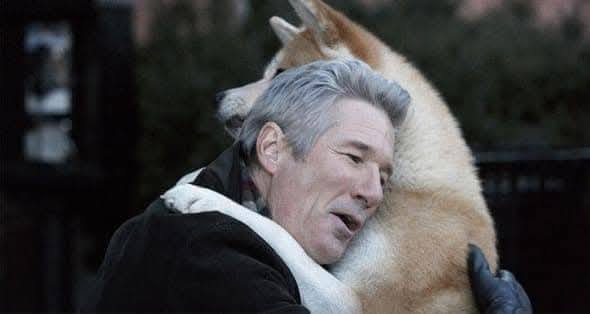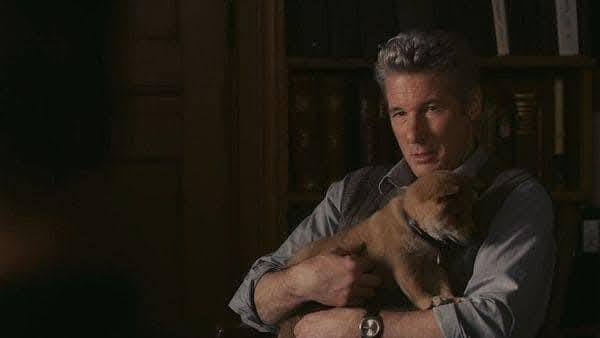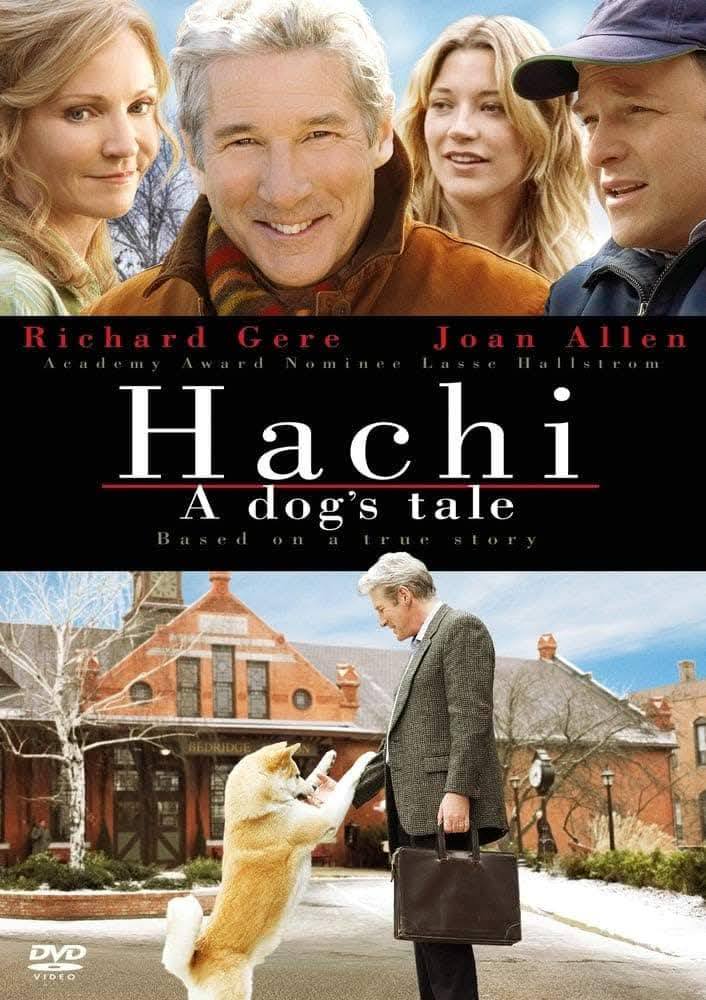Hachi: A Dog’s Tale (2009)

“Hachi: A Dog’s Tale” (2009) is a poignant film directed by Lasse Hallström, inspired by the true story of Hachiko, an Akita dog who became a symbol of loyalty and devotion. The film stars Richard Gere, Joan Allen, and Sarah Roemer, and is based on the real-life story of Hachiko, who waited for his deceased owner at a train station every day for nearly 10 years.


Plot Summary: The film begins with Parker Wilson discovering a lost puppy at the train station. Despite his initial reluctance to keep the dog, a connection forms between them, leading Parker to adopt Hachi. The dog follows him to the train station daily and waits for his return in the evening, becoming a regular fixture in the life of the local community. Tragically, Parker unexpectedly dies at work, leaving Hachi waiting at the station. The story then poignantly follows Hachi as he continues to wait at the train station for his owner every day for the next nine years until his own death.

Themes and Performances: “Hachi: A Dog’s Tale” explores themes of loyalty, love, and loss. It’s a simple yet profound narrative about the bond between a man and his dog, demonstrating how pets can deeply influence human lives. Richard Gere delivers a warm, understated performance that perfectly complements the equally compelling portrayal of Hachi (played by several Akitas). Joan Allen, as Parker’s wife Cate, supports with a restrained role that reflects the familial tension and eventual acceptance of Hachi’s importance in their lives.

Visuals and Direction: Lasse Hallström, known for his ability to handle emotionally driven films, uses a gentle and patient approach that allows the story to unfold naturally, supported by beautiful cinematography that captures the quaint, serene environment of the town. The film avoids melodramatic traps, instead offering a more meditative look at grief and devotion.

Music and Score: The soundtrack, composed by Jan A.P. Kaczmarek, is subtle and touching, enhancing the emotional landscape of the film without overwhelming the story.
Critical Reception: While the film did not make a large impact at the box office, it received positive reviews for its heartfelt storytelling and was particularly noted for its emotional depth. It has become something of a cult classic, especially among dog lovers, praised for its faithfulness to the real-life story of Hachikō and its sensitive portrayal of the bond between humans and animals.
Conclusion: “Hachi: A Dog’s Tale” is a film that may require a stack of tissues to watch. It’s a beautifully crafted, if somber, homage to loyalty and the unbreakable bonds we form with our pets. This film is particularly effective for those who appreciate stories of profound emotional resonance and can enjoy the slow-paced, deliberate unfolding of a narrative centered on the themes of love and loss.